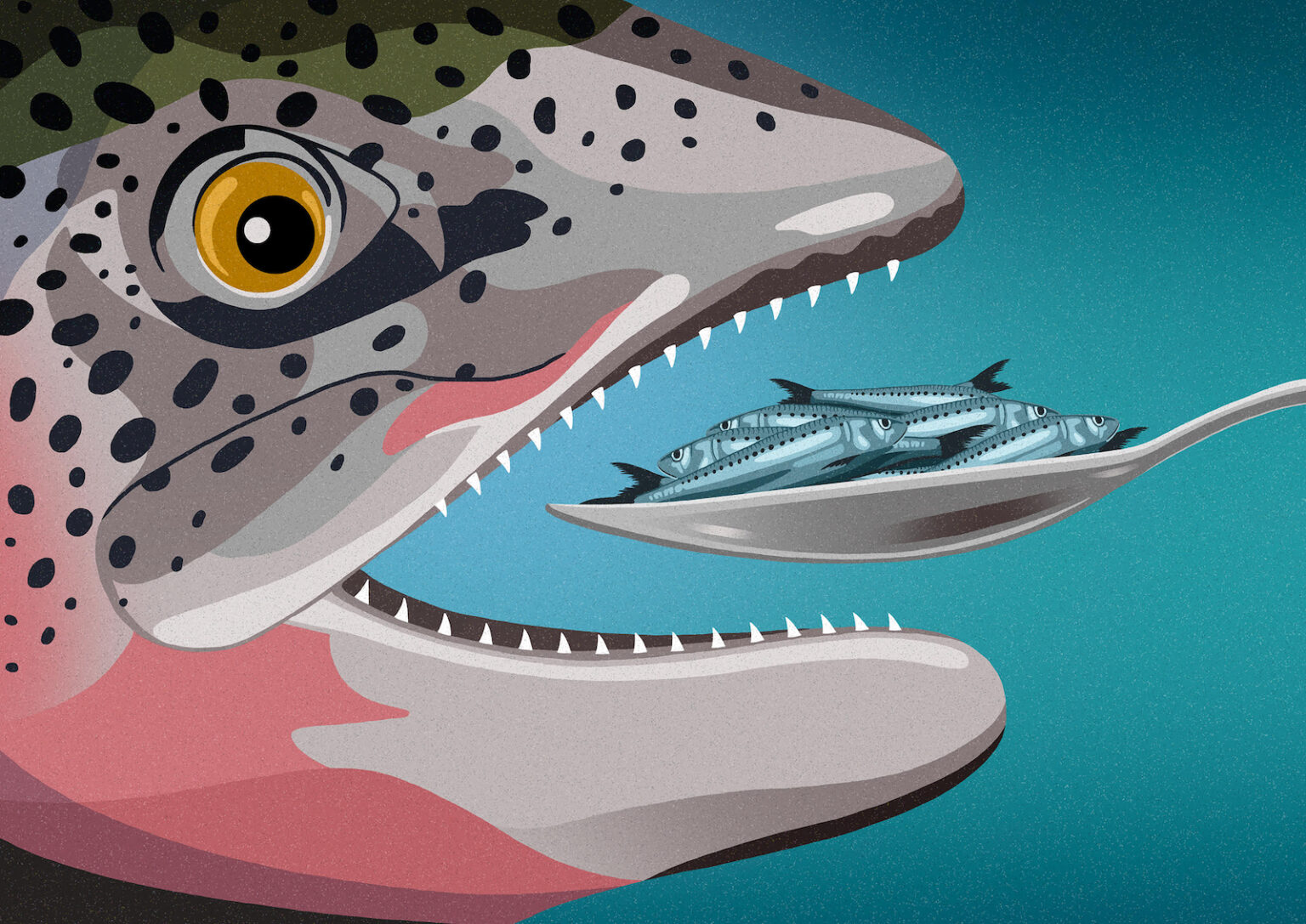At first glance, fish might seem like a climate-friendly alternative to meat for a world that needs to shift away from carbon-intensive cattle. At least the seafood farming (or ‘aquaculture’) industry would have you see it that way.
Right now the market for farmed fish like salmon is booming. In fact it’s the fastest-growing food sector in the world. This is thanks in no small part to excellent marketing that brands this fish as the ‘chicken of the sea’: low-carbon, easy to cook and sustainable.
But there’s a hitch with this ‘sustainable protein’ spin. Like other intensive farming sectors, aquaculture has been dogged by controversy, and accused of varied ecological and social harms including animal welfare concerns, pollution and highly complex, extractive supply chains, which source the feed that farmed fish rely on.
And that’s the part that DeSmog is most keen to dig into: the feed. The mainstream argument goes that aquaculture can provide a much-needed respite to overfished wild stocks. But the trouble is that popular carnivorous fish such as salmon, shrimp and sea bass have to be fed with other fish, which are ground up to make fishmeal and fish oil.
These ingredients are finite and in great demand. While pigs, chickens and supplements are all destination markets, aquaculture takes the lion’s share – and within it, the need for fish oil in particular is most acute for salmon and trout farmers, who hoover up the majority. Without it, salmon get sick, their scales flake off and they don’t deliver on the Omega 3 promise to consumers.
To stay healthy, salmon need to feed on small, oily, and nutritious species, known as forage fish for their place in the food chain: silvery, hive-mind specimens such as sardines, mackerel or sprats. They are harvested by the tonne off the coast of West Africa and pulverized into fishmeal and fish oil that’s exported to Europe and Asia.
The problem is that these fish – and the nutrients they contain – are also irreplaceable for people. They would otherwise be feeding communities – already hard hit by climate change – who have no other way to replace this previously low-cost ‘superfood’. These fish contain the nutrients most needed by children in their first 1,000 days of life, in a part of the world where hunger and malnutrition is on the rise.
We’ll be unpicking the challenges associated with feed – which is also the main source of greenhouse gas emissions for the sector – and looking into how the aquaculture industry seeks to influence policy. And you can expect to see profiles of key players and initiatives in our agribusiness and soon-to-be launched aquaculture database.
The project builds on our food politics work, where we put the green claims of players in the agribusiness industry under the spotlight.
We’re excited to bring our investigative track record – looking at how commercial interests have sought to delay action to protect both climate and nature – to bear on holding this powerful industry to account.
Watch this space – and send your tips our way at [email protected].
Subscribe to our newsletter
Stay up to date with DeSmog news and alerts







